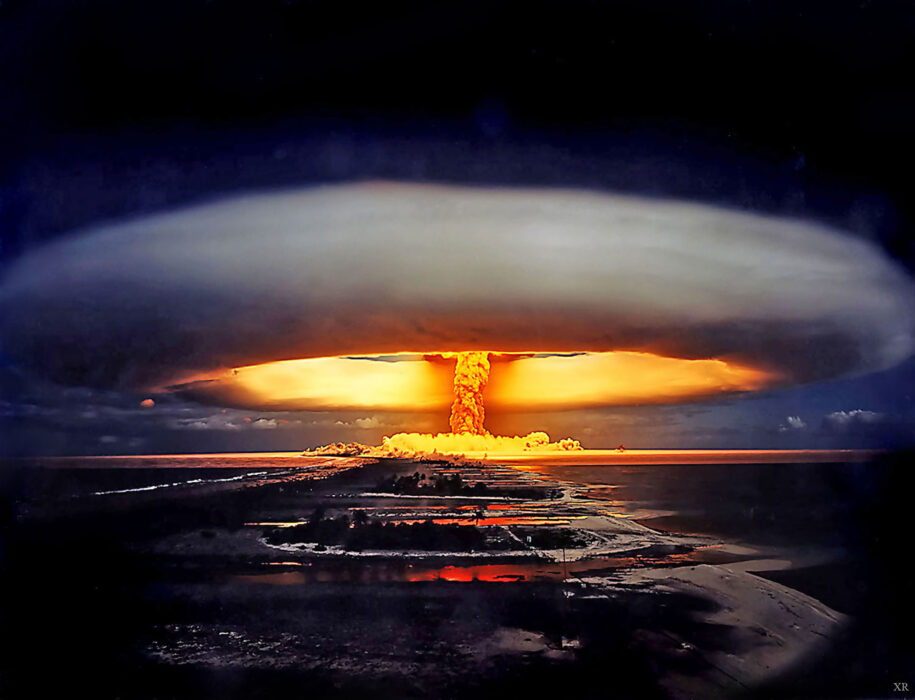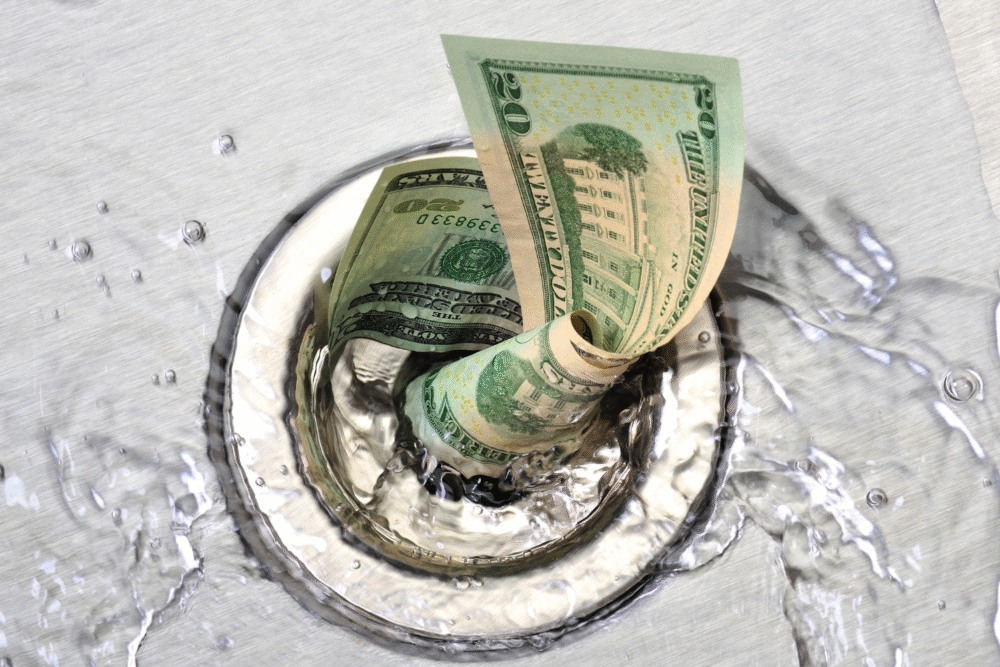Your money might not be as safe as you think.

The flash on the horizon isn’t a camera—it’s the start of a world-altering event. While we all hope it never comes to pass, thinking about the unthinkable, like a nuclear conflict, raises some very practical questions about our daily lives. Specifically, what happens to the digital numbers that represent our life savings?
The intricate web of global finance is more fragile than we imagine. Understanding the potential points of failure can give us a clearer picture of what financial survival might look like in a world reset by catastrophe.
1. Your Digital Dollars Could Simply Vanish

Most of our wealth today exists as digital entries on a bank’s server. A significant nuclear event, especially one involving high-altitude detonations, could generate an electromagnetic pulse (EMP) capable of frying electronic circuits over vast areas. This would instantly destroy the unshielded servers that store and process financial data. Without backups that are both shielded and accessible, the records of who owns what could be permanently erased, making your account balance effectively zero.
Even if some core banking systems survive the initial blasts, the interconnected infrastructure would be gone. The power grid, internet services, and communication networks needed to verify and process transactions would be offline indefinitely. ATMs would be useless bricks, and online banking would be a distant memory. Your money might technically still exist somewhere on a protected server, but you would have absolutely no way to access or use it.
2. The Value of Your Currency Would Plummet

In a world reeling from nuclear devastation, faith in government and its institutions would evaporate overnight. Fiat currency, like the U.S. dollar, is valuable only because we all collectively agree it is, a belief backed by the stability and economic might of the government that issues it. When that government’s ability to function is in question, the currency it backs becomes little more than decorated paper or worthless digital bits.
This loss of confidence would trigger immediate and uncontrollable hyperinflation. The price of essential goods would skyrocket as people rushed to trade their rapidly devaluing cash for tangible items with real-world use. The new economy would quickly revert to one of bartering, where things like canned food, medical supplies, fuel, and ammunition become the true currency. Your life savings in dollars would be unable to buy a loaf of bread.
3. Global Stock Markets Would Instantly Cease to Exist

The entire concept of a stock market is built on the foundation of a functioning global economy. Corporations derive their value from their ability to produce goods, provide services, and generate profits within a stable system of trade and consumerism. A nuclear war would shatter that system completely. Supply chains would be broken, factories destroyed, and consumer bases decimated, rendering corporate valuations utterly meaningless.
Your 401(k), brokerage account, and any other stock-based investments would become worthless in a matter of moments. The exchanges in New York, London, and Tokyo would shut down, not just for a day, but permanently. The digital shares you own are promises of a piece of a company’s future earnings, and in a post-nuclear world, those companies would no longer have a future, making your portfolio a relic of a bygone era.
4. Insurance Policies and Debts Would Become Meaningless

You might think your life or property insurance policies offer a safety net, but they are built for a world that would no longer exist. Virtually every insurance contract contains an “act of war” exclusion, which would be immediately invoked by any surviving carriers. A nuclear exchange is the definitive act of war, meaning all claims for damages, loss of life, or destruction of property would be denied. The insurance industry itself would collapse under the weight of an impossible number of claims and the destruction of its own assets.
On the flip side, the same collapse of financial institutions would likely wipe out your debts. The banks and corporations holding your mortgage, car loan, or credit card balance would probably cease to exist, and with them, the records of what you owe. The legal and enforcement systems required to collect on debts would be gone. While being free from a mortgage might seem like a small silver lining, it’s a symptom of a total societal breakdown where financial obligations of any kind have become unenforceable and irrelevant.
5. Your Physical Assets Would Have Uncertain Value

Many people believe that in a doomsday scenario, precious metals like gold and silver would be king. While they would certainly hold more value than paper money, their utility would be debatable. Gold is heavy, difficult to divide for small transactions, and you can’t eat it or use it for shelter. Its value depends entirely on finding someone who has essential supplies and is willing to trade for it, and possessing it would make you a target. True value would shift to items of immediate practical use.
Real estate would face a similar re-evaluation. The legal deed to your home would be worthless if the county records office is a crater and there’s no functioning government to enforce property rights. Ownership would revert to a more primitive state: you own what you can physically occupy and defend. A suburban home might offer shelter but could be difficult to protect, whereas a remote piece of farmland with a source of fresh water would become one of the most valuable assets imaginable.
6. Your Retirement and Social Security Would Disappear

Government-run programs like Social Security and public pensions are fundamentally social contracts. They depend entirely on a functioning government to collect taxes from a working population and then distribute those funds to retirees. Following a nuclear war, the government entity that made that promise would be shattered, along with its ability to levy taxes and manage payments. The system would simply cease to operate, and those guaranteed income streams would vanish instantly.
Private retirement accounts like 401(k)s and IRAs would fare no better. These accounts are not just piles of cash; they are complex investments in stocks and bonds, managed by large financial institutions. As discussed, the value of those underlying assets would plummet to zero. The companies managing the funds, along with the entire regulatory and legal framework that protects your savings, would be gone. The concept of a “retirement account” would become an artifact of a lost civilization.
7. Cryptocurrency Would Likely Fail as a Savior

Many people view decentralized currencies like Bitcoin as the ultimate hedge against the collapse of traditional finance. However, crypto has a critical vulnerability: it relies entirely on the internet and a consistent supply of electricity. The blockchain is maintained by a global network of computers that must communicate with each other to validate transactions. A nuclear war that destroys power grids and data centers would effectively shut down this network.
Even if small, isolated parts of the network somehow survived, cryptocurrency would be impractical for everyday use. To access your digital wallet and make a transaction, you need a charged electronic device and an internet connection, both of which would be extreme luxuries in a post-apocalyptic world. Without the necessary infrastructure, your crypto holdings would be just as inaccessible and unusable as the money in your defunct online bank account, proving it isn’t the foolproof safe haven some believe it to be.
